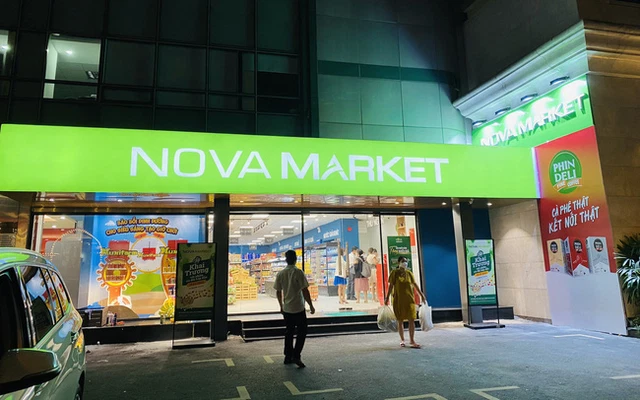Report 4 food trends shaping the F&B sector in 2022
19/04/2022Sustainability and health will continue to play a central role for F&B companies in 2022 and the years ahead, as consumers show more interest in these issues.However, these are all fairly broad terms, so in this study, Spoonhot will explore and dig a little deeper into the four areas that are expected to grow and explode the most.
Previously in 2019, Spoonhot correctly predicted 7 out of 8 food trends for 2021. And this year’s report is expected to bring the most useful inspiration and information to F&B brands. in the journey to breakthrough after the Covid-19 pandemic.
predicting 2022 food trends in health
Food Synergy – The Power of Immune Booster Foods
Early studies of Covid-19 indicate that people with high immunity will be less severely affected by the virus. Since then, the need to store and use products containing immunity enhancers has exploded strongly, in which Vitamin C and Zinc (Vit C-Zinc) are the two most preferred ingredients. This has prompted F&B businesses to invest in research on this combination in their products. In Detail:
The interest of enterprises in Vit C-Zinc combination in January 2021 has increased by 814% compared to the same period in 2020, while the interest of consumers has only increased slightly by 3%. However, if compared to the first 6 months of 2020, the interest of users has increased to 66%.
Food synergy is the concept of how nutrients from different foods interact and improve (or even reduce) the absorption and bioavailability of nutrients in the body. Bioavailability is the percentage of nutrients in food that are ingested, absorbed, and metabolized in our bodies. Not all of the micronutrients we consume are fully absorbed, which means we don’t get the most nutrients from our food.
One of the reasons to focus on food synergy is because there is more and more interest in the concept of Food as medicine – natural consumption, minimal processing to retain the most nutrients for health.
Corporate interest in food as medicine in January 2021 has increased by 55% compared to last year, while consumer interest decreased slightly by 2%.
“In the coming year, we expect to see consumers become more involved in food synergy trends as they seek to better control their health and rely on food like medicine instead of drugs,” Spoonshot said. As consumers become more interested in nutrition, we expect to see a shift from the need to select a single ‘golden ingredient’ to a ‘dynamic duo’. ”
The concern for gut health continues to grow as one of the predictions of Spoonshot’s food trends for 2022 in both consumer and corporate media. Social media conversations about health also show that gut health is one of the top health issues talked about.
Intestinal health continues to be an important concern for consumers and businesses, with increases of 76% and 11%, respectively.
A recently published study has shown a link between intestinal health and the health of the lungs. Given the role of the intestine in the body’s immune response, a healthy intestinal tract. This opens the door to newer functional benefits for probiotics and prebiotics.
“The Gut-Lung Axis is just one of many emerging benefits of maintaining a healthy digestive system. Although it may be too early to use this as a scientifically proven statement, this is a development in the growing concern for intestinal health. This further underscores the importance of the Food as medicine perspective, which is becoming increasingly popular with consumers.”
Predict food trends in 2022 in catering
Olfactory and taste dysfunction is one of the most common symptoms of Covid-19.
The road to recovery for many is a long and difficult one – for some, it takes weeks, even months. Current global data (as of early 2021) on olfactory loss indicate that approximately 50% of patients have fully recovered their sense of smell within 40 days of Covid-19, but an estimated 10% have yet to regain these senses.
- Studies have shown that olfactory training – repeated exposure for short periods of time to the taste – can be beneficial for people who have lost their sense of smell.
- Life Kitchen, a non-profit organization in the UK, has also launched a cookbook to help people relish their favorite food and flavours.
“Although this trend may only be short-lived, olfactory loss and related conditions are much more common than perceived by many people. In fact, there are still many opportunities for F&B brands to support such consumers. It’s also an opportunity for brands to experiment with new textures and flavors. ”
What do the food predictions for 2022 have to do with robots in the world? Let’s take a closer look at the content below:
As indoor catering services are allowed to resume, the catering industry is struggling with labor shortages.
One of the solutions restaurants are starting to take into account is automation to fill the gaps, from food processing and serving to home delivery. Although automation or the concept of using robots in the food industry is not so new, it was not until the pandemic that the food service industry really considered these viable options.
During the pandemic, many food brands began implementing robotic and drone deliveries to minimize touchpoints. The robot is also being used to manage some kitchen and service tasks.
Miso Robotics is one of the first companies to launch AI-enabled kitchen assistant robots that can prepare automatic drinks, make burgers, mix salads.
“In the coming year, we will see a stronger boom for automation in the F&B sector, especially in fast service stores where speed, quality and consistency are paramount. Widespread and comprehensive automation cuts down on tedious and repetitive tasks, such as preparing food, so restaurants can focus on more value-added services, like creating new dishes, changing menus, and refreshing menus more often. ”
Food trends in 2022 and beyond are sustainable
In 2013, the first hamburger that was “grown” in the lab was served to a small number of users in London. This particular hamburger took three months to make and cost 280,000 dollars. Now, after less than a decade, the meat from the lab is no longer so strange and is being sold at extremely affordable prices.
By the end of 2021, Singapore will officially authorize the sale of farmed meat in the laboratory and become the first country to allow this. The American company Eat Just has also launched chicken raised in its laboratory in a local restaurant. Worldwide, there are more than 100 companies working on farmed meat and auxiliary ingredients and technology.
In the future, food grown in the laboratory will not only be limited to meat but will also grow into many other foods.
The foods currently grown in the laboratory include:
- Dairy Products
- Gelatin
- Collagen…………………
- tallow
- BREASTMILK
- Honey
- Product Replacement
- Coffee
But for consumers, food grown in the lab may not really be an important choice for them.
Corporate interest in food grown in the lab has increased by 64% compared to last year, but consumer interest has fallen by 35%.
“Over the next year or two, we hope to see consumers open their doors to cell-based foods, just like they did for plant-based products. Other cultured foods will also begin to appear more on shelves or in products as ingredients.”
Plant-based milk transferred to granular form
The next growth boom for plant-based milk will come from cereals. Oat milk has been a prerequisite for the acceptance of cereal-based milk, with a better taste and sustainability than almonds and other nuts.
Interest in oat milk surpassed other leading candidates in the substitutes segment, almost doubling (95% growth) compared to the previous year, while interest in almond milk increased by only 19% and soya milk by 7% over the same period.
Hobbies (consumers and businesses) for plant-based dairy products
This opens up opportunities to explore and expand into other cereals, especially barley. Barley is a hard seed and can be grown in extreme climates. It is the fourth most cultivated plant in the world and is quite nutritious, but is not widely used in the food industry except for malt and beer.
Bright Barley, a plant-based dairy brand, is focusing on harnessing this trend when it comes to launching its first barley-based milk in the UK. Bright Barley milk is thought to be low in fat, provides fiber, adds calcium, vitamin D and vitamin B12.
“Plant-based milks will continue to expand and grow. Cereals are the next journey with the popularity of oat milk and other cereals such as barley that not only meet the health factor but are also better for the environment. ”
Trends in food recycling and elimination of waste – Upcycle
Upcycle is still a new concept for many consumers, but will soon become more popular as more and more products and companies highlight this information and efforts. In the coming year, companies will look closely at by-products in their manufacturing processes and figure out how to make them consumeable, thereby cutting waste.
Corporate Upcycle interest increased 128% in the media and this level of interest in consumers decreased by 32% compared to last year.
As the Upcycle trend becomes more accepted, the next focus will be on scaling up and building secure infrastructure. Next year is also expected to see stronger collaboration as large, well-established companies look to invest in this space to gain an advantage in terms of reducing food waste, thereby improving their sustainability with consumers.
“In the coming year, upcycle will move from launching niche foods and beverages to breaking into the mainstream when it comes to focusing heavily on ingredients of obvious origin and their uses.”
Complementary food trends for 2023 & beyond
As discussed above, gut health will continue to be a priority, especially as new studies point to its importance to overall health. In addition to familiar compounds such as prebiotics and probiotics, lesser-known biological agents, such as postbiotics, will be of greater interest.
Interest in postbiotics has increased by 391% compared to last year
Postbiotics can be found in some foods that contain probiotics, such as kimchi, kefir fermented milk, and sour bread.
Postbiotics can have many benefits like prebiotics and probiotics, including reduced blood sugar and obesity risk, intestinal leakage, as well as anti-bacterial and anti-inflammatory benefits. Many postbiotic strains also help protect oral health and skin.
Many food and beverage products are beginning to highlight sustainability credentials by being candid about their carbon footprint.
Interest in carbon labelling has increased 90% compared to last year
Spoonshot’s research shows that brands, retailers, and restaurants begin to focus on carbon labelling on packaging as a way to promote transparency and spread awareness of their actions toward the planet and engage environmentally conscious consumers.
by MarketingAI
Must Read

F&B business actively enter the METAVERSE


The three big trends of retail in 2023


Vietnam hotel market will transform in 2022

PRODUCTS EXHIBITION
You may be interested in


Vietnam Culinary Challenge (VNCC) 2024

Vietnamese cuisine ranked 22nd in the world

Vietnam Airlines launches Bangkok-Da Nang route

10 best fine dining restaurants in Vietnam as selected by Tripadvisor readers

Phu Quoc ranks among the world’s most amazing islands

Hanoi has joined the world’s top 100 premier tourist cities.

Sustaining its leading position in the Vietnamese tourism industry, Ho Chi Minh City remains a top travel destination

Advancing connectivity to elevate Phu Quoc into an exceptional international destination.














































